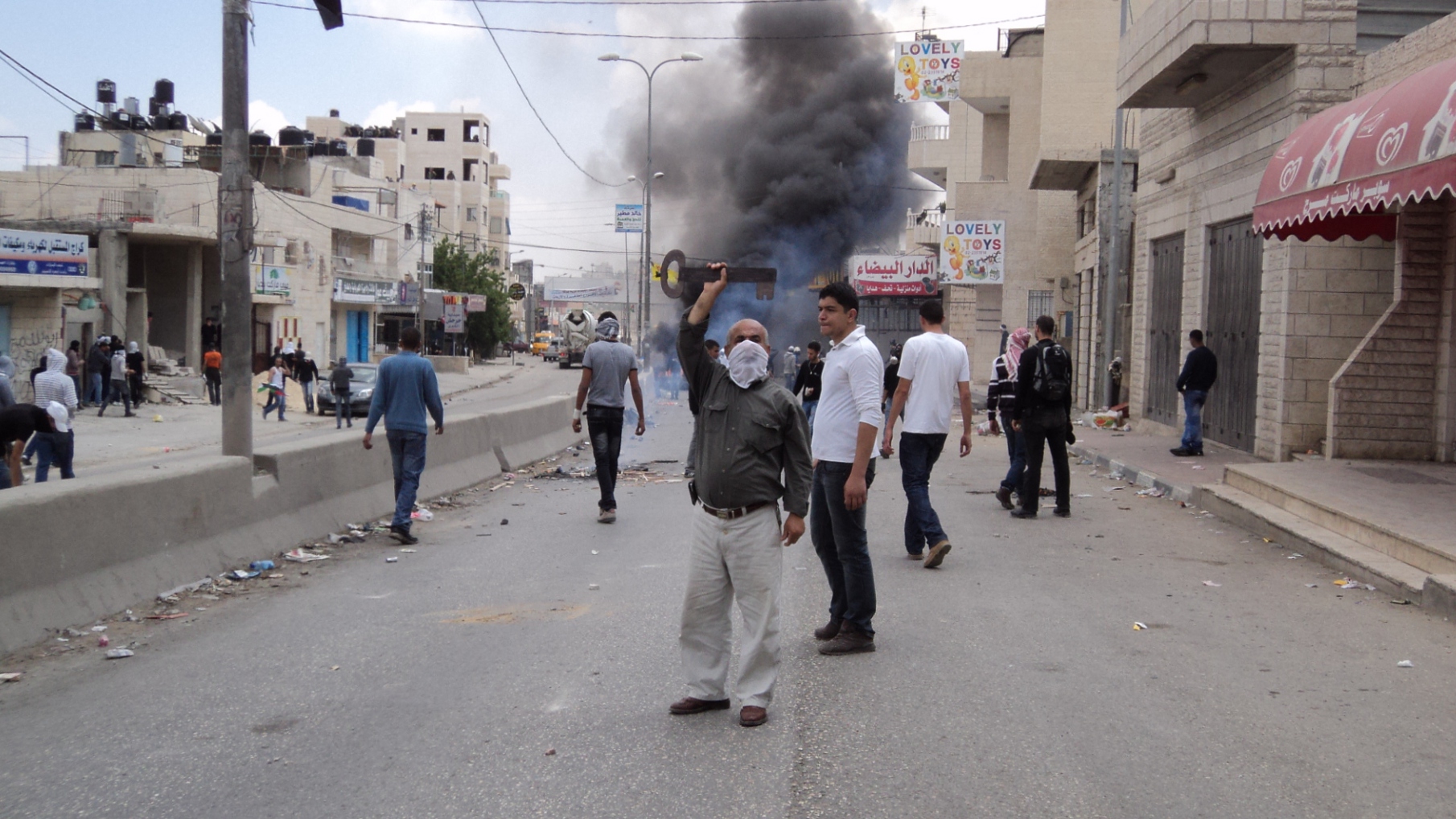Tag: Arrests
-
Three members of ISM arrested during peaceful demonstration in Iraq Burin
28 May 2011 | International Solidarity Movement This afternoon three members of the International Solidarity Movement were arrested during a peaceful demonstration in Iraq Burin. The activists from the UK, Denmark and Iceland had joined the villagers in protesting the loss of their land to the illegal Israeli settlement of Bracha, however the demonstration had…
-
Free Bassem and Naji Tamimi
18 May 2011 | Popular Struggle Coordination Committee Recent events have once more proven the potency of civil resistance, and its ability to bring about change and end injustice. From the Arab Spring to the recent demonstrations commemorating the Nakba, ordinary people are affecting change. While Abdallah Abu Rahmah is finally out of Israeli prisons,…
-
Protesters commemorate the Nakba at Qalandyia
15 May 2011 | International Solidarity Movement From 11.00 this morning until 21.00 at night, the International Solidarity Movement joined with thousands of Palestinians and other Internationals in commemorating the Nakba by demonstrating at Qalandiya checkpoint which separates the West Bank from Jerusalem and the rest of pre-1948 Palestine. As protesters united in denouncing the…

